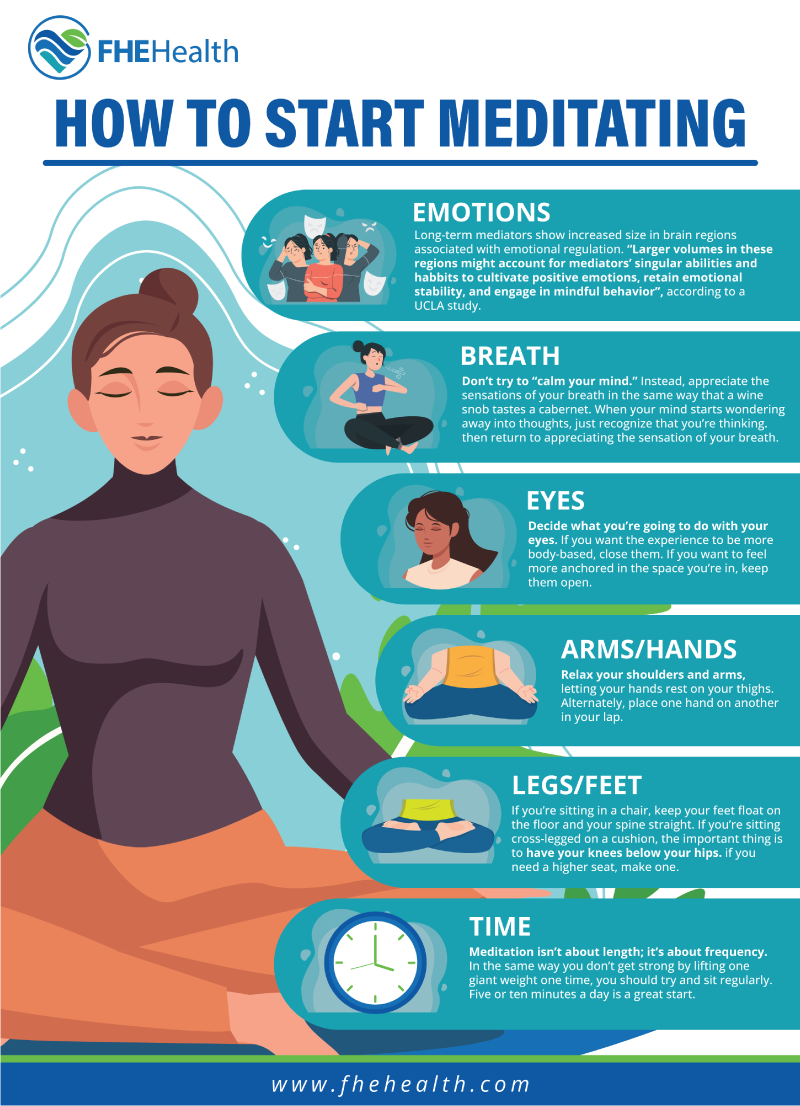
Meditation has long been a popular way to maintain a peaceful mind and deal with issues plaguing your mental well-being. However, achieving a meditative state isn’t always easy. Obstacles to meditation come in many forms, and many people struggle with achieving the correct state of mind. In this article, we provide meditation help by outlining some of the most common obstacles to meditation, providing hints on overcoming them and suggesting some alternatives.
Common Obstacles to Meditation
Many people who try meditation need help with learning how to meditate, but don’t think to ask for help before saying “I can’t meditate” and giving up completely. There’s almost always a simple reason behind difficulty meditating that can be overcome. Even if your obstacles to meditation are tougher to get past, it may just require a bit more work. Here are some common problems that may be blocking your ability to meditate.
Stress
This may sound like an odd one, as many people meditate to reduce stress, but stress can prevent you from reaching a meditative state. The reason for this is that chronic stress forces your mind into a primitive fight or flight response, which is the furthest you can be from the restful state you’re trying to achieve. To alleviate your stress enough to begin meditating, you can try deep breathing exercises to get yourself into a more restful state. Alternatively, take a gentle walk in the park or another green space, which can also calm your mind.
Exhaustion
At the end of a stressful day at work or after a challenging workout, you might think it’s a good idea to meditate to relax and unwind. Unfortunately, this is not the best time to meditate. Achieving a meditative state requires keeping your awareness levels up, and your brain needs energy to do this. Your body allocates energy based on need, and when you’re exhausted, it’s going to prioritize sleep. Try meditating in the early morning after a good night’s sleep instead. This will have the added benefit of clearing your mind, ready for the day’s labors.
Hunger
When meditating, you need as few distractions as possible so your mind can focus properly. Being hungry can be a huge distraction. As your blood sugar levels drop, your brain doesn’t want to think about anything besides finding food. If you’re meditating early in the morning and struggling, try having a light breakfast first — but nothing too heavy, as that can make you sleepy, causing another barrier to meditation.
Pain
Whether physical or emotional, pain can be a force that overwhelms all of your thought processes. Although meditation can be a way of managing acute or chronic pain, pain can also form a strong barrier against it. There are two approaches to overcoming pain as a block to meditation. Firstly, ensure you’re taking advantage of your available pain management aids and try to meditate in a position that minimizes your pain. Secondly, a more challenging approach is to use the pain to focus your awareness, becoming aware of the pain but not suffering through it. This second approach may require some help from an expert.
Strong Emotions
Powerful emotions are a sure way to derail your meditation. If you just received some bad news, it’s probably not the best time to attempt meditation. Equally, if you’ve just returned from a joyful celebration, you will need some time to come down from an emotional high. Let the emotions run their course and then attempt meditation when you feel more balanced. In the case of string anger, you might want to meditate to control it, but it’s a good idea to do some deep breathing first to calm yourself down.
The Benefits of Meditation
Although meditation was looked down on by medical professionals for many years, many are now becoming aware of its benefits for both mental and physical health. These include:
Managing Anxiety and Depression
By regulating breathing and slowing down your thoughts, meditation works to alleviate the worst symptoms of anxiety and depression. Studies by researchers at Harvard also found that changes in MRI patterns linked to reductions in the symptoms of depression that began during meditation continued even when patients were no longer meditating.
Managing Stress
When you’re under stress, your brain produces cortisol, a hormone involved in fight-or-flight responses, and maintains it at a level that can be detrimental to your physical health. Meditating reduces your production of cortisol, leaving you feeling less stressed. Meditating regularly can dramatically reduce your stress levels, although it’s always best to attempt to address the causes of your stress.
Boosting the Immune System
By reducing your stress levels, meditation also boosts your immune system. With less cortisol flowing through your system, your body is much better able to fight off infections. This also reduces inflammation, chronic pain, and the risks of heart disease.
Lowering Blood Pressure
There is ample evidence to show that stress increases your blood pressure, so it’s no surprise that meditation, by reducing stress, also reduces your blood pressure. This in turn reduces your risks of heart attack, strokes, and sudden death. A study by the British Heart Foundation found that subjects practicing transcendental meditation had a 48% lower risk of suffering heart attacks or strokes.
Alternatives to Meditation
Of course, it’s possible that due to one of the reasons mentioned earlier, you may find it impossible to meditate. For example, if you have particularly high-stress levels or you have pain that makes it impossible to focus. In that case, there are alternatives to meditation that can help you focus and find mental restfulness. You might want to try one of these:
- Walking. In a park or around nature is best, but anywhere that isn’t too noisy or full of distractions is good.
- Coloring books. Focussing on a simple task like coloring allows the mind to find rest.
- Cloud gazing. Lying on your back, just looking at the sky and making out shapes in the clouds can be extremely relaxing.
- Drumming. This focuses your mind on maintaining a rhythm. Some therapists offer group drumming sessions as a means of calming patients.
Essentially, any activity that requires focus without too much mental effort can be an alternative to meditation. Some of these may even help block any obstacles to meditation you are experiencing.
It’s Okay to Seek Help
While meditation is an excellent way of assisting with mental health issues and may be all you need if your problems are mild, it’s okay to ask for help if you’re still struggling.
Stress, anxiety, and depression are common in today’s society and can blight lives, but help is available should you need it. At FHE Health, our experienced mental health practitioners are here for all your needs in recovering from these mental health conditions, so don’t hesitate to reach out today for a consultation.







